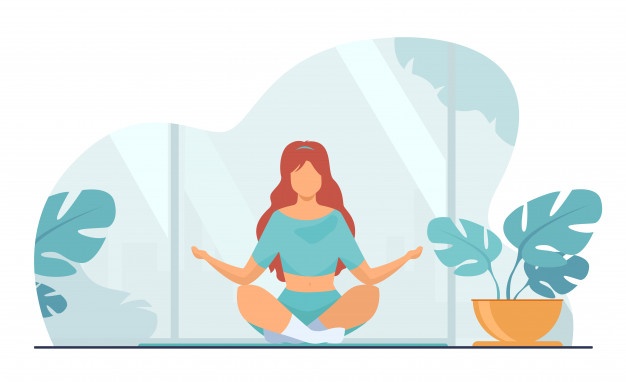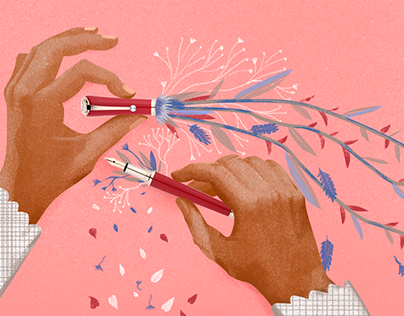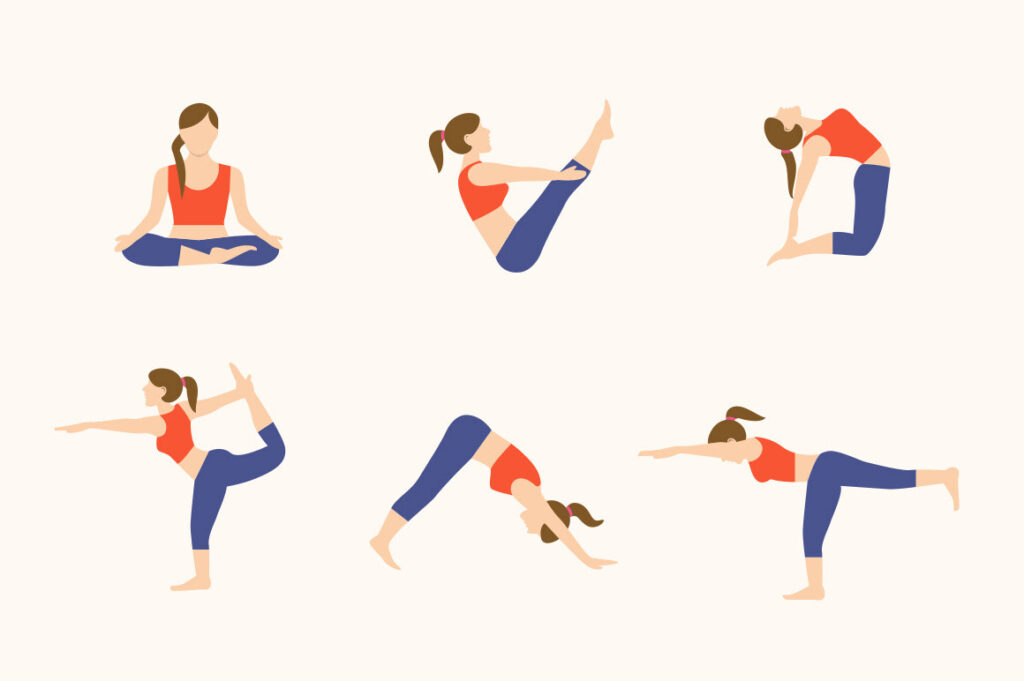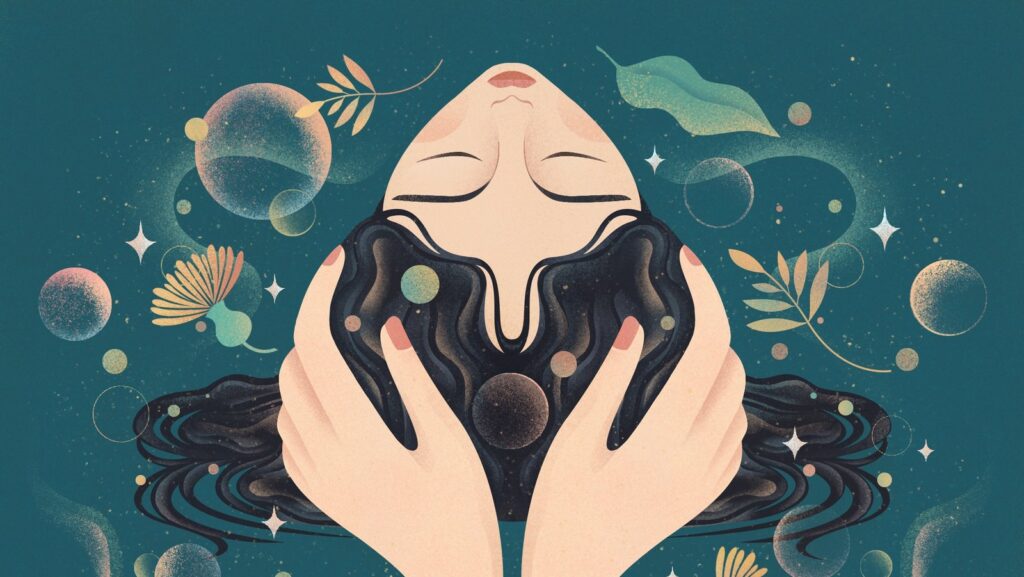11 Ways to Feel Calm in the Moment
We all have our fair share of moments when we feel more stressed, out of place, anxious, and worried than usual. When these negative thoughts enter our brain, it’s easy to give in and allow them to take over. It’s up to us to keep them from spiraling out of control. Want to hear Good news? That’s totally doable! Here are 11 ways to feel calm in the moment:
1. Use logic to challenge your fears
Irrational feelings are also the cause of sudden and intense experiences of stress and anxiety. You may begin to dwell only on the worst-case scenario, or you may become engulfed in a chorus of what-ifs that play into your deepest fears.
Try to talk yourself out of it by challenging your fear with the reasoning in these situations. Consider the following:
- What proof do you have that this is true?
- Chances what I’m afraid of will really happen?
- And chances that it won’t happen?
- What good would it do me to be worried about this?
- How will I do with the worst-case scenario?
- What can I say to a friend who is currently concerned about this?
You will begin to think more confidently and mentor yourself through any leftover negative feelings after you’ve answered these questions.

2. Breathe and Breathe Deeply.
Feel calm at the moment? We know, not yet. This should have been numero uno on the list. so, pointing it out like every other portal, BREATHE. Focusing on your breath is one of the most effective ways to slow your racing heart and make yourself feel calmer.
The first act in life is – breathing in!
The last act in life is – breathing out!
Think about it –
Isn’t your breath really fast when you are angry and really smooth and mellow when you are calm?
By paying attention to your breath and practicing pranayamas (breathing techniques), you can easily bring the mind to a pleasant state from an unpleasant one by enhancing and regulating the life force (prana) in the system.

3. Write it out
Writing out all your anxious and worried thoughts can leave you feeling like a weight has been lifted off your shoulders. Journaling helps you healthily process emotions and gives you a better understanding of what you’re worried about (that goes back to confronting your fears). It can significantly reduce feelings of anxiety.
Think about how you would spend a day doing only the things that make you feel excited, happy, engaged, or fulfilled. Free-write a list of everything you would include in this day, from the time you wake up until you head to bed at night. Reread your list and choose at least one item to incorporate into your schedule today.

4. “Burn off” your stress
It can be impossible to practice a technique like deep breathing when you’re stressed because the adrenaline makes it hard to engage.
At these moments, consider doing something that can help the body get rid of the adrenaline, such as:
- Chores that need a lot of energy to complete
- High-intensity exercise
- Dancing around the house to loud music
- Any aerobic exercise
These exercises will help you focus and think rationally by calming your brain and body. You may then go on to techniques like deep breathing or the 5,4,3,2,1 strategy to calm down any more nervous feelings.

5. Close your eyes
Our eyes dilate and our faces tense up while we are stressed. Close your eyes for a few seconds and then open them again. Concentrate on calming the facial muscles fully. This easy exercise will help you de-stress and re-establish your sense of calm.
It can be practiced sitting or lying on the floor, in a comfortable environment. Close your eyes and focus your attention on the present as you discard distracting thoughts that crowd your mind and cause anxiety and stress. The breath is easy, natural, and relaxed. Allow your mind to be free. Give yourself permission to be present and relaxed.
6. Watch something that makes you Laugh
Laughter truly is the best medicine sometimes — but it has to be real. One 2017 study found that laughing regularly can lead to a decrease in blood pressure, which can make you feel calmer over time.
Laughter can also relieve anxiety and boost positive feelings. It even has a name: laughter therapy. Here is my suggestion: Watch FRIENDS.

7. To feel calm in the Moment: Meditate, Meditate, Meditate
You don’t have to be a seasoned meditator who practices every day to benefit from the exercise. According to a 2018 report, even one hour of meditation will dramatically reduce anxiety and stress levels.
Download an app like Headspace or Calm, abhyasa so you can meditate in the comfort of your home. To really feel calmer, find a peaceful room and relax in a relaxed place with your eyes closed.
8. Do you have a pet?
There’s a scientific reason for therapy animals (and no, it’s not so that people can ride for free with their pets). Pet owners have reduced heart rates and blood pressure and are more able to handle unpleasant conditions, according to a 2002 report.
Pets will also help you feel better and relax.

9. Drink Water.
Dehydration will make you feel exhausted and dizzy in addition to thirst. Try drinking a glass of water if you’re feeling overwhelmed or down. Much better, if you have the opportunity, brewing a cup of stress-relieving tea will offer a much-needed break from whatever is causing you stress.
10. Splash Cold Water on Your Face
Go to the bathroom and turn on the cold water tap. H2O should be used to cool your hands and face, as well as your pulse points. The impact of cold water is rejuvenating.
Cooling down can be a highly effective way to help calm your emotions. Splashing water on your face can help to calm anxiety by diverting the brain’s attention, as well as helping to ground you in your body.
Holding your breath, dip your face in a bowl of cold water; keep water above 50 degrees. Or hold a cold pack or ziplock bag with ice water on your eyes and cheeks or splash cold water on your face.
11. Massage your Scalp
Is your to-do list making you want to pull your hair out? Hair tugging is a massage therapy process that can help relieve pain in the scalp and promote healing. Pull the hair softly up to the point that you can see the scalp rise a little. After that, give your scalp a light massage.

The above tips are great when you need to feel calm at the moment, but they aren’t long-term solutions for intense feelings of anxiety, depression, and stress.
In some cases, it may be best to seek help from a professional to learn how to prevent and manage these feelings. If left untreated, they can lead to more serious mental health issues.
Talk to a doctor if any of these things are true for you:
- You feel like your anxiety is interfering with your daily life on a regular basis.
- You feel like you have no control over your anxiety (in other words, none of the above tips leave you feeling calmer).
- You’ve turned to drugs or alcohol to cope with your anxiety.
- You’re experiencing physical problems like stomach pain or a racing heart.
- You’re experiencing suicidal thoughts or behaviors (you can get immediate help by calling 911 or your local emergency number).




